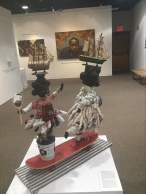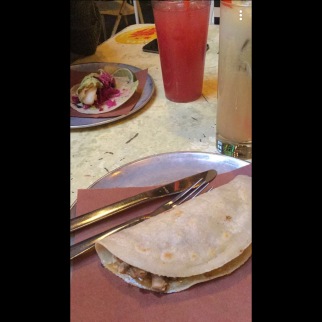I personally am a huge fan of art galleries but not the ones with just random art pieces that do not make sense to me. I like art that is eye opening, shocking, and can be interpreted in many ways. When I heard about the art gallery right on campus I knew I had to check it out. The book, Citizen, by Claudia Rankine was something I have read in class last semester. The book itself was interesting so I wanted to see how the art gallery would represent it.
There was so much to this art gallery that was intriguing. Starting with the first eye opening piece as soon as you walk in as seen below.

It was too delicate and pretty to be seen as something that holds a grueling meaning. The reasoning behind it was that as a person of color carrying even a fake gun or as the sculpture shows a gesture of a gun is seen as a threat to others.
The pieces in the art gallery were simplistic yet detailed. There were figurines made from random broken items, a concept I personally love, recycled art representing power colored figures in society.

Beyond that were very vivid and often glittering paintings of five black men who had been falsely accused of raping a white women. They were poised in the frames very casually yet boldly. Their was so much power in these pictures from their stances to the vivid colors.

The gallery visualized the book very well. Each piece had a quotation written under or above with it’s own meaning. Their was so much to see and feel in each piece. The gallery was a great experience to me and I definitely recommend everyone to go ASAP.

